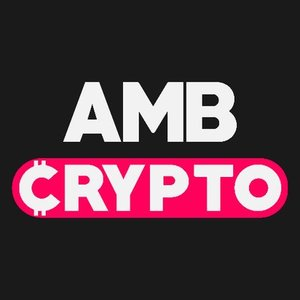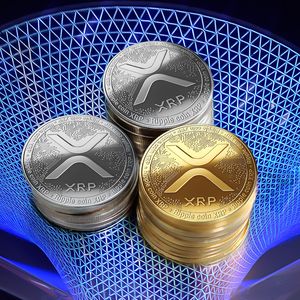Top 10 White Label Blockchain Solution Providers
13 min read
This guide features the best white-label blockchain platforms available in 2025. These companies offer robust, customizable infrastructure that enables individuals and businesses to launch exchanges, wallets, NFT platforms, or payment systems quickly, without having to build from scratch. In the following guide, I will explain what white-label blockchain platforms are, their pros and cons, how to choose the right one, and what to watch out for when selecting a provider. Key Takeaways: White-label blockchain platforms let businesses launch crypto products under their own brand without building backend infrastructure. Use cases include decentralized exchanges, wallets, token platforms, NFT marketplaces, and more. These solutions help you save on development costs, accelerate launch time, and focus on branding and user growth. Key benefits include customization, regulatory compliance tools, scalability, and developer support. Not all providers are equal; some are better suited for startups, while others are better suited for enterprises. Choosing the right one depends on your project’s needs, budget, and timeline. Table of Content Top 10 White-Label Blockchain Platforms for 2025 What is a White-Lable Blockchain Platform? Why Use a White-Lable Blcokchain Platform? 5 Tips for Choosing the Right Solution Conclusion Top 10 White-Label Blockchain Platforms for 2025 A quick look at the best platforms to launch your crypto exchange, wallet, or fintech product: ChangeNOW : Non-custodial swap engine for wallets & fintech apps Blockchain App Factory : Full-stack blockchain infrastructure for enterprise-grade projects Antier Solutions : Compliance-ready platforms for regulated crypto businesses ChainUP : Scalable exchange backend with advanced trading & global liquidity B2Broker : Brokerage-grade trading infrastructure with fiat on/off ramps HollaEx : Open-source crypto exchange builder with DIY deployment options Coinsclone : Fast, affordable white-label platforms for exchanges, DeFi, and NFTs LeewayHertz : Custom blockchain development for CBDCs, DeFi, and supply chain use cases Infinite Block Tech : End-to-end crypto development across wallets, tokens, NFTs, and exchanges Velmie : Fintech-focused infrastructure for wallets, banking, and remittance platforms ChangeNOW: Lightweight Crypto Swap Engine With Pro Features This listing is promoted. ChangeNOW is a crypto management platform that helps wallets, DeFi platforms, and fintech apps add non-custodial swap functionality in just a few lines of code. Launched in 2017, the platform now supports over 1,500 digital assets across 110+ blockchains, including popular names such as Ethereum, Solana, and Avalanche, alongside a wide range of networks such as zkSync, Linea, and Algorand. Unlike full exchanges, ChangeNOW is designed for fast, simple, and secure swaps with no accounts or custody required. The platform offers quick settlement, permanent exchange addresses, and support for fiat via integrations with partners like Transak, Simplex, and Guardarian. Power users can upgrade to ChangeNOW Pro, which unlocks benefits like reduced fees, AML address checks, cashback rewards, and access to crypto loans. Best For: Wallets, DeFi apps, and fintech platforms that are looking for a plug-and-play swap engine without managing infrastructure or custody. Key Features: Non-custodial crypto swap infrastructure 1,500+ assets across 110+ blockchains Seamless API integration and fast onboarding Fixed & floating rate swaps with transparent pricing Access via web, mobile app, and Telegram bot Fiat support via Visa, MasterCard, Apple Pay, and more 24/7 customer support with a 4.5 Trustpilot rating Pros: Supports rare and trending tokens (DeFi, GameFi, LSTs, RWAs) Most swaps complete in under 2 minutes 98% of transactions settle at or better than the quoted rate No signup required, full privacy-first experience ChangeNOW Pro unlocks cashback, custom pages, and crypto loans Cons: Not designed for advanced trading (no order books) Limited liquidity control compared to traditional exchanges Blockchain App Factory: Enterprise-Grade White-Label Blockchain Development Blockchain App Factory is a full-stack blockchain development company offering white-label platforms for exchanges, NFTs, wallets, DeFi apps, and tokenized ecosystems. With years of experience in the space, they provide tailored solutions that cover everything from smart contract deployment to regulatory compliance and liquidity provision. In my view, the platform is suitable for large-scale or highly customized projects that require enterprise-level infrastructure. It includes tools like multi-currency wallets, AML/KYC modules, and token issuance systems, and supports integration with liquidity providers to ensure market depth. While Blockchain App Factory is one of the most comprehensive players in the space, its pricing and timeline may be better suited to established businesses rather than lean startups. Best For: Enterprises and complex blockchain projects in need of tailored development, legal support, and full-stack infrastructure. Key Features: End-to-end development for exchanges, NFTs, and dApps Smart contract creation and token issuance tools Built-in AML/KYC compliance modules Liquidity support and API integrations Dedicated account management and post-launch support Pros: Highly customizable to meet specific project goals Enterprise-grade security and infrastructure Covers both technical and legal components Strong reputation and deep industry knowledge Cons: Pricing may be high for early-stage startups Longer delivery times due to tailored approach Antier Solutions: Compliance-Ready Blockchain Infrastructure for Regulated Use Cases Antier Solutions delivers white-label blockchain platforms for centralized and decentralized exchanges (CEX/DEX), NFT marketplaces, wallets, and tokenization systems, with a strong focus on regulatory compliance and long-term support. Their infrastructure is modular and customizable, making it ideal for businesses operating in regulated environments or planning large-scale deployments. Antier also develops private blockchain networks, offers blockchain consulting, and provides robust post-launch support to help projects scale with confidence. Though their backend is reliable and compliance-first, the user interface may not be as sleek as some newer players in the space. Nonetheless, for businesses that prioritize structure, security, and legal readiness, Antier is a go-to option. Best For: Regulated crypto platforms and enterprises seeking compliance-focused, customizable blockchain infrastructure. Key Features: White-label platforms for CEXs, DEXs, NFTs, and wallets Token creation and private blockchain development Built-in AML/KYC tools and compliance modules Modular architecture for flexible customization Ongoing consulting and post-launch technical support Pros: Strong compliance readiness out of the box Ideal for regulated or jurisdiction-sensitive projects Includes technical, legal, and operational guidance Long-term support and solution scaling Cons: More suited to enterprise than lean startups Customization may require close coordination with their team ChainUP: Modular Exchange Backend With Liquidity and Global Reach ChainUP offers white-label blockchain solutions for crypto exchanges, wallets, NFT platforms, and liquidity networks, built around a modular architecture that supports rapid deployment and global scalability. Its infrastructure includes advanced trading features like margin, staking, and derivatives, while also connecting clients to global liquidity via top-tier market makers. ChainUP’s backend is designed for high-performance trading environments, complete with multilingual localization tools, wallet-as-a-service, and enterprise-grade security modules. The platform also includes 24/7 technical support and ongoing updates, making it a strong choice for firms with long-term ambitions. However, it may be too complex for startups without a technical team. Best For: Crypto exchanges and trading platforms seeking scalable infrastructure with advanced features and built-in liquidity access. Key Features: Modular white-label backend for exchanges and wallets Built-in support for margin, staking, and derivatives Global liquidity integration via trusted market makers Multilingual UI support and regional customization Wallet-as-a-service and blockchain security tools Pros: Enterprise-ready architecture with fast deployment Deep liquidity access and strong trading features Technical support available 24/7 Strong focus on scalability and security Cons: May be too complex for early-stage or non-technical teams UI customization may require additional development resources B2Broker: Crypto Brokerage Infrastructure With Fiat & Liquidity Solutions B2Broker specializes in white-label solutions for crypto brokerages, multi-asset trading platforms, and payment providers, combining blockchain infrastructure with traditional finance integrations. It supports features like spot and margin trading, copy trading, and wallet management, and is especially well-known for its deep liquidity pools and fiat gateway support. B2Broker’s platform includes connections to banks, PSPs, and liquidity providers, enabling businesses to offer seamless on- and off-ramp services. It’s a favorite among firms looking to launch regulated, fiat-integrated crypto platforms with a mix of Web3 and Web2 finance capabilities. That said, it’s built with sophisticated use cases in mind and may not be a perfect fit for projects looking for lightweight or niche deployments. Best For: Crypto brokerages, trading platforms, and fintechs that require fiat support, liquidity integration, and multi-asset trading capabilities. Key Features: White-label platform for spot, margin, and copy trading Built-in liquidity aggregation across major exchanges Fiat gateway integrations with banking and PSP networks Crypto payment processing and wallet management Regulatory compliance support and modular customization Pros: Ideal for launching brokerage-style platforms Advanced liquidity and trading features Seamless fiat-crypto infrastructure Regulator-friendly with strong legal backing Cons: May be excessive for basic DeFi or DEX projects Higher cost and complexity due to institutional-grade tooling HollaEx: Open-Source Exchange Kit With DIY Deployment Options HollaEx is a white-label exchange builder that stands out for its open-source model and self-hosting flexibility. It allows businesses to launch crypto trading platforms with minimal upfront cost, making it potentially appropriate for startups or developers who want to maintain more control over infrastructure. The platform supports core trading functionality (spot trading, crypto listings, user management), with optional modules for fiat gateways, KYC tools, and custom token listings. Users can either host their exchange on HollaEx’s cloud or deploy it on their own servers using the open-source codebase. It’s particularly suited for teams with some technical capacity that want a lower-cost entry into the exchange market. Best For: Developers and lean startups searching for an affordable, open-source crypto exchange framework with flexible deployment options. Key Features: Open-source exchange toolkit with full control DIY cloud or on-premise deployment options Token listing tools and trading pair management Optional KYC, fiat integration, and theming modules Built-in admin panel and analytics dashboard Pros: Cost-effective and ideal for budget-conscious teams Transparent open-source framework Strong community and documentation No vendor lock-in Cons: Requires technical know-how for setup and hosting Lacks the enterprise features of larger providers Coinsclone: Fast, Affordable Platforms for Exchanges, DeFi & NFTs Coinsclone delivers white-label platforms for launching centralized exchanges, DeFi products, ICO portals, and NFT marketplaces. It comes with integrated crypto wallets, staking and lending models, KYC systems, and mobile app support for both Android and iOS. Coinsclone is designed for startups and small businesses that want to get to market fast without building from scratch. The interface is clean and intuitive, and the platform supports multiple blockchains with post-launch technical support. While it’s not built for large institutions or deep liquidity needs, it’s a solid option for early-stage teams on a budget. Best For: Startups and small businesses building token platforms, exchanges, or NFT marketplaces with limited resources. Key Features: White-label solutions for exchanges, ICOs, NFTs, and DeFi Built-in staking and lending modules KYC system and integrated crypto wallets Mobile app support (iOS & Android) Multi-chain compatibility and post-launch support Pros: Quick deployment for MVPs and early-stage launches Versatile across different crypto business models Mobile-ready with a clean, user-friendly UI Cons: No built-in liquidity aggregation Not ideal for institutions needing advanced tooling LeewayHertz: Custom Blockchain Development for Enterprise Use Cases LeewayHertz is a provider specialized in building custom blockchain infrastructure for enterprises. The firm has a heavy focus on advanced sectors like CBDCs, DeFi, insurance, and supply chain logistics. Rather than offering pre-built templates, LeewayHertz develops tailored blockchain solutions from the ground up, covering everything from backend systems to API integrations and smart contract audits. This platform is ideal for businesses prioritizing functionality and infrastructure over UI flash. It’s not suited for quick exchange launches or lean startups, but it’s a powerful choice for organizations needing robust, scalable, and highly specific blockchain deployments. Best For: Enterprises building purpose-driven blockchain solutions beyond exchanges, especially in regulated or utility-based sectors. Key Features: Custom blockchain development across various industries Sector focus: CBDCs, insurance, logistics, and DeFi Scalable and modular architecture Backend development, API integrations, and audits Pros: Built for complex, mission-specific projects Fully customizable and highly scalable Experienced in enterprise and government-grade use cases Cons: Not suitable for fast-launch crypto exchanges May be resource-heavy for smaller teams or budgets Infinite Block Tech: Full-Service Blockchain Partner for Tokens, Exchanges & NFTs Infinite Block Tech offers white-label platforms for launching wallets, centralized and decentralized exchanges, token platforms, and NFT marketplaces. It is primarily known for its flexibility. The company provides end-to-end services—from product design and development to post-launch support and optional marketing assistance. Their solutions include custom trading engines, KYC modules, and liquidity integration, all designed to be blockchain-agnostic. Whether you’re building on Ethereum, BNB Chain, or another network, the platform adapts to your needs. It’s a solid option for teams that want an all-in-one service without being locked into one vertical. Best For: Crypto businesses seeking flexible, full-cycle development across exchanges, wallets, and token platforms. Key Features: White-label support for wallets, exchanges, NFTs, and tokens Custom trading engines and built-in liquidity modules Multi-chain compatibility across top blockchains Post-deployment support and optional legal and marketing help Pros: Covers a wide range of blockchain product types Flexible infrastructure that adapts to project goals End-to-end service from planning to launch Cons: Less suitable for teams prioritizing sleek, design-first UI May require more coordination for highly customized builds Velmie: Blockchain-Powered Fintech Suite for Banks & Remittance Platforms Velmie focuses on bridging traditional finance and blockchain, offering white-label solutions for digital wallets, banking platforms, and tokenization systems. It’s built specifically for banks, neobanks, PSPs, and remittance providers that need secure, compliant, and scalable infrastructure for Web3 finance. The platform includes multi-currency wallet support, mobile apps, fiat gateways, and full KYC/AML compliance modules. Velmie is not designed for crypto trading or DEX platforms but excels in helping regulated institutions enter blockchain without compromising on oversight. Best For: Banks, fintechs, and payment firms entering Web3 with a focus on compliance, remittances, and digital asset infrastructure. Key Features: White-label wallets and banking systems Tokenization infrastructure for asset digitization KYC/AML tools and fiat integrations Multi-currency wallet and mobile support Modular APIs for financial institutions Pros: Strong emphasis on compliance and TradFi integration Ideal for B2B platforms and digital banking Mobile-ready and globally focused Cons: Not suitable for DeFi or trading-focused products Lacks support for crypto exchanges or DEX functionality What Is a White-Label Blockchain Platform? A white-label blockchain platform is a pre-built, customizable solution that lets you launch blockchain services under your own brand. From exchanges and wallets to NFT marketplaces and even full blockchain networks, these providers handle the tech, while you focus on branding and user experience. It’s perfect for companies without in-house developers. Most platforms include APIs, admin dashboards, token creation tools, and essential security features. Many also offer extras like fiat on-ramps, compliance modules, and liquidity integrations. Why Use a White-Label Blockchain Solution? Throughout the past couple of years, I’ve noticed that white-label platforms are gaining popularity. Here’s why they make sense: Faster Launches: Go live in weeks instead of months. Lower Costs: Skip the hefty R&D and infrastructure spend. Full Customization: Tailor everything from branding to features. Built-In Compliance: Many include KYC/AML tools and legal frameworks. Effortless Scalability: Easily onboard users and expand across regions. Whether you’re building a DeFi platform, a GameFi app, or a crypto payment system, I think that white-label solutions can potentially help you get there faster. 5 Pro Tips for Choosing the Right White-Label Blockchain Platform Not all white-label platforms are built the same. Here are five key factors to consider before making your pick: Look Beyond the Basics A good platform should offer more than just swaps or wallets. I think it’s important to prioritize solutions with scalable features like staking, NFT support, fiat integration, and multi-chain compatibility. The broader the toolkit, the better your chances of future-proofing your product. Security Comes First Security should always come first and features mean nothing without it. It’s critical that you make sure the provider is following best practices. These include cold wallet storage, two-factor authentication, DDoS protection, as well as regular smart contract audits. Does it Follow Regulations? Regulations vary by region, so choose a platform that takes compliance seriously. Remember – you are taking their solution and using it as is. Therefore, I would suggest considering solutions with built-in KYC/AML tools, audit logs, and access to legal support, especially if you’re targeting global markets or fiat integrations. Customer Reviews are Important Don’t just take the company’s word for it. Take a proper look at client reviews, case studies, and testimonials to determine whether the platform is stable and if the post-launch quality is up to your own standards. After all, this is what your own customers will be using, so it’s paramount that you’re fully aware of all of its bells and whistles. Responsive Support Matters No matter how great the tech is, things will eventually break. A knowledgeable, responsive support team can make or break your launch timeline. Look for platforms that offer 24/7 technical help and real onboarding assistance, not just a ticket system or an AI-based chatbot that will respond automatically, providing little to no help at all. Frequently Asked Questions (FAQs) How much does it cost to use a white-label blockchain platform? Prices can range from as low as $5,000 for basic API-based tools to over $100,000 for fully featured exchange infrastructure. The cost depends on your use case, customization needs, and technical complexity. Can I create my own crypto exchange? Yes. With a white-label solution, you can launch a crypto exchange in just a few weeks using pre-built trading engines, liquidity integrations, and user management systems. What is the cheapest white-label blockchain platform? Platforms like HollaEx and Coinsclone are popular for their affordability. Open-source options (like HollaEx) often come with lower upfront costs but may require more hands-on setup. What is the best white-label blockchain solution provider? It depends on your project. ChangeNOW is good for quick, non-custodial swaps. Blockchain App Factory is great for full-scale exchange and NFT infrastructure. Velmie suits fintechs and remittance platforms. Choose based on your business model, target users, and technical resources. Top 10 White Label Blockchain Solution Providers: Conclusion White-label blockchain platforms can offer a very powerful option for launching your very own feature-rich crypto products without having to invest heavily into development. Whether you’re building a DeFi platform or you’re launching an NFT marketplace, the right provider can definitely help you get to market a lot quicker and, potentially, with lower costs and fewer technical hurdles. As blockchain adoption continues to accelerate in 2025, these ready-made solutions can give founders, fintech companies, and Web3 startups the tools necessary to build, scale, and innovate at the speed that’s required to not fall behind. The post Top 10 White Label Blockchain Solution Providers appeared first on CryptoPotato .

Source: Crypto Potato



